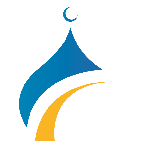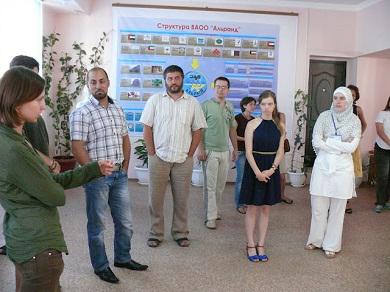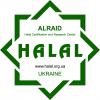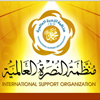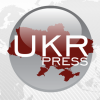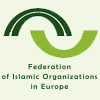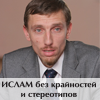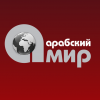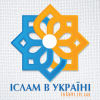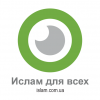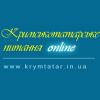You are here
I International summer school of Islamic studies: results and prospects » Add new comment
Add new comment
“Contemporary Islamic studies in Ukraine as a scientific field still remain at the formation phase and do not have significant scientific gains” is a conclusion made from the I International summer school of Islamic studies. This five days event (from 10 till 14 July) was held in Simferopol.
The school was organized by the All-Ukrainian Association of Public Organizations “Alraid” and the Youth Organization “Emel” jointly with the All-Ukrainian Public Organization “Ukrainian Center for Islamic Studies”. It was attended by 24 young scientists and post-graduates from various regions of Ukraine, whose scientific works have passed the competitive selection. The objective of this event is to extend the young scientists’ knowledge about religious teaching of Islam, Islamic studies, sources of Islamic learning and present-day conditions of Islam in Ukraine and beyond.
Islam in Ukraine and beyond
Participants could extend their understanding of Islam and historic phases of its spreading. Said Ismagilov, mufti of the Religious Administration of Muslims of Ukraine “Ummah”, delivered lectures about history of Islam in Ukraine and beyond, and about various trends in Islam.
Seiran Arifov, Dr. of history and Master of Shariah sciences, focused on extensive theoretic training of young scientists by introducing them to the structure and the nature of Shariah sources. He explicated true meaning of the term “jihad”, so widely circulated by mass media, and rejected the related conjectures and stereotypes.
However, the organizers’ goal was not confined to passive listening to the lecturing course by young scientists. It is very important to give one an opportunity to articulate one’s own experience and discuss issues in light of one’s own understanding and perception. It is the way for attaining a deeper grasp in nuances, as subject of the discussion is analyzed from various perspectives; as a result, better mutual understanding appears and a comprehensive approach to finding solutions for a discussed problem can be elaborated. For this purpose, the school hosted round tables “Relations between religious communities in Ukraine”, “Religious philosophy”, “Family in Islam”, “Muslims in the media”, which gave participants a good chance to speak and deliver their scientific works.
Extending world perception horizons
The theme of transformation processes brought by “Arabic spring” became a subject to hot discussion about future trends in Arab countries, as no country can be found in the region, where a renaissance process has not occurred. Dr. Vyacheslav Shved, head of the All-Ukrainian Public Organization “Ukrainian Center for Islamic Studies” and a leading research fellow of the Institute for World Economy and International Relations of the National Academy of Sciences (NAS) of Ukraine, shared his scientific elaborations on the theme with school participants, and illustrated that the processes are not by far as simple as they are shown by some analysts, that they are deeply rooted in religious and cultural identity of Arab nations. He also refuted the widely circulating stock phrase that these processes will destroy the Arab world, by making the vice versa prediction: if Arab nations do not stop halfway and bring transformation processes to the end, this will mark the beginning of renaissance of Arab and Muslim civilization.
The discussed themes were interesting for both Muslims and non-Muslims. Dr. Zahid Nawab, a young religious researcher from U.K., delivered lecture about common nature of the three world religions, Islam, Christianity and Judaism. It was for centuries that the common nature invariably impressed people not familiar with a comparative analysis of these monotheistic teachings. School participants were not an exception as well, being, inter alia, impressed by the fact that the common nature and continuity of Prophetic traditions was highlighted in ayahs of the Koran more than 1400 years ago.
It should be better seen once than heard a hundred times
It is well known that personal experience produces a more striking impression and can be remembered better than lots of voluminous theoretic books. Therefore, a trip to Bakhchisaray, an old center of Muslim culture in the Crimean peninsula, made indelible impression and allowed for better understanding of how lots of daily Muslim practices are implemented. Sightseeing tours were arranged for participants to the Khan Palace, medrese Zydzhyrly (one of the oldest universities in East Europe) and other memorial sites. Also, they had a good chance to attend Friday prayer inside the old Khan Mosque and to listen to hutba (Friday sermon) on the eve of the blessed month of Ramadan.
Also, young scientists met representatives of the youth organization “Emel” who actively participated in all the events and discussions. This allowed persons who are just beginning the scientific carrier of an Islamic researcher to learn opinions on a number of issues, held by common Muslims striving to observe religious commands in the best manner, and hear from them stories about pressing problems and difficulties faced by Crimean Muslims on the whole and Crimean Tatars in particular. A personal contact like this allowed one to have a deeper grasp of the situation with Ukrainian Muslims.
Mr. Said Ismagilov, mufti of the Religious Administration of Muslims of Ukraine “Ummah”, also received lots of questions concerning religious teaching as well as the work of the Religious Administration that he heads. He gave positive judgment of the school performance: “I believe our school is a success. Of course, it does have shortcomings, as it’s our first undertaking of the kind. It’s true that Islamic studies are poorly developed, as they are conducted quite rarely, there’s lack of fundamental works in the field. In seeking for solutions to this problem, we have decided to try to adapt experiences of other confessions and organize such a school, to draw the scientific community’s attention to Islamic studies in Ukraine”.
“The discussions took form of the scientific discourse, and I am very much pleased that there was no tarnishing, offensive words or malicious attacks at each other. Another greatly positive feature is contributions from representatives of various scientific fields – historians, journalists and religious researchers”.
Summing up
According to the participants, the summer school had rather high scientific performance. Lectures and reports found enthusiastic response from the audience, being subject to hot debate at scientific discussions. It is not only an evidence of the importance of discussed themes, but of the high communication culture of the audience as well.
All the summer school participants received certificates and small presents from the AAPO “Alraid”. They, in turn, shared their ideas with organizers on quality enhancement of future schools. Thus, Mrs. Olga Rybachuk appreciated high scientific performance of the participants: “I have never attended a school for Islamic studies like this one. It is extremely exciting and useful experience, and I wish the school to host greater numbers of participants next year”.
Also, proposals were made that the participants should be selected by competency level, possibly by dividing them into several groups, which would simplify the cognitive process for less competent ones and make it more interesting for more competent ones. Yet, all the participants were unanimous in their desire to have this school as a traditional form of scientific meetings for young scientists.
Dilyaver Saidahmetov
